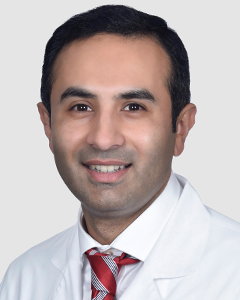You’ve experienced heart discomfort, or your primary care doctor noticed something amiss during routine blood work. So now you’re headed to your first appointment with a cardiologist.
What happens next?
The goal of the initial meeting is to launch a thorough evaluation of your heart. You might be worried and alarmed before your first appointment. To get the most out of the session, don’t show up empty-handed. Literally. Bring a notepad with a list of questions you’d like to ask.
As a starting point, consider these:
- How does my family history affect my heart health? If coronary artery disease runs in your family, there’s a strong chance your genes make you more vulnerable. This is particularly important if you have a parent, brother or sister who developed heart disease. That link is further bolstered if they developed the disease before the age of 50. This is one of the reasons your doctor collects a detailed family medical history, as it could suggest the need for earlier interventions, tests and steps to reduce your risk.
- What role does my blood pressure play? High blood pressure is one of the strongest risk factors for heart disease. And while it can be controlled by medication, the goal is to use lifestyle modifications as well. High blood pressure, in fact, contributes to numerous health problems, including:
- Heart attack
- Peripheral artery disease
- Stroke
- Aneurysm
- Heart failure
- Dementia
- Kidney damage
- Vision problems
- What is my cholesterol level and how does it affect my heart? High levels of cholesterol increase the risk of heart disease by creating a buildup of fatty deposits in your blood vessels, forcing your heart to work harder than it should. While your doctor will look at your cholesterol numbers, there are other factors that could come into play when making decisions about treatment options. Patients with diabetes, for example, are at higher risk for heart disease. So a more aggressive strategy may be employed, even if cholesterol numbers are only modestly high.
- Am I experiencing problems because my age, gender, or weight? In general, men are at slightly higher risk for heart disease than women. Being over the age of 50 also increases your risk. Of course, there’s nothing you can do about either of these risk factors. On the other hand, you can do something about your weight. Having a Body Mass Index of 25 or higher increases your risk.
- How would I know if I’m having a heart attack? A key sign is chest pain that gets worse with exertion and doesn’t get better with rest. If you suspect you may be having a heart attack, call 911 and don’t attempt to drive yourself to the hospital. Other symptoms:
- Feeling weak or light-headed
- Pain in the jaw, neck or back
- Pain in one or both arms or shoulders
- Shortness of breath
- Are my eating habits affecting my heart? Changing your diet is one of the most important things you can do to reduce your risk of heart disease. The American Heart Association recommends an emphasis on vegetables, fruits, whole grains and healthy proteins, including fish. You should cut back on red meat, sugars, alcohol and processed foods.
- How does exercise affect my heart symptoms? Exercise is another lifestyle modification that can have a significant impact on your heart health. The key is finding an aerobic activity that gets your heart pumping. This should be done three to four times a week, for about 40 minutes per session. If you have no history of heart disease, this exercise should be moderate to vigorous. Even if you have a history of heart disease, exercise should be part of your health plan. But you should consult with your cardiologist about how to approach it.
- Is my level of stress/anxiety increasing my risk of heart complications? A lot of attention is paid to measurable risk factors like cholesterol and blood pressure. But stress, anxiety and social factors also can aggravate your symptoms and accelerate heart disease. Among other things, stress often encourages coping mechanisms – smoking, alcohol and overeating – that are direct risk factors.
- What are my treatment options for the heart symptoms I am having? Don’t expect your cardiologist to write a couple of prescriptions and call it a day. The best way to manage your risks for heart disease is a multifaceted approach with a heavy reliance on lifestyle changes. Your treatment plan is likely to include recommendations to eat better and exercise more.
- What should I do if my symptoms don’t go away? If your symptoms are not going away, seek help immediately. And if a treatment plan developed by your cardiologist isn’t providing relief, let them know. That’s key to helping your doctor delve deeper into your health situation.
Choose to Stay in Touch
Sign up to receive the latest health news and trends, wellness & prevention tips, and much more from Orlando Health.
Sign Up










